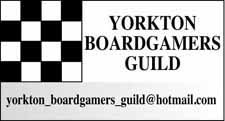I recently wrote about a card game which sought financing through Kickstarter and missed the mark. This week I am looking at Ortus, a game which met the same fate.
Ortus, designed by Joost Das, is an abstract strategy game, think a cousin to chess, and as such appeals to a more limited gaming community. Fewer gamers are looking for deep, one-on-one battles of wit, and are looking just for the fun of getting together with a group to play a board game.
In an interview Joost said he was seeking a game that pitted two minds against each other. That was part of the game's origin.
"I wanted to remove the luck factor of rolling dice or drawing cards. Victory would be sweeter if Lady Luck was not involved here. And players should be able to move multiple pieces in one turn with few restrictions.
"With the main mechanism Ortus has now, both these requirements are met."
The game of Ortus now has little to do with miniature war-gaming, but you will 'feel' that root design in its theme.
Ortus is about two Japanese warlords sending their forces to battle, although that is more for background in the same way that chess is two medieval armies at war.
But it is interesting to have Joost explain the game's influences.
"Considering theme, the movie Hero by Zhang Yimou was the biggest inspiration. Every chapter in that story is shot in a very specific colour," he said. "The Ortus playing pieces already had four different colours but no story behind them. After seeing that movie, I started to write the background story and imagined a world around the Ortus arena that had been a simple hexagonal board before.
"And of course the cartoon series Avatar: The Last Airbender have been an inspiration. Coupling the movement of the pieces thematically with the elements Fire, Water, Wind and Earth made a lot of sense."
Still, Ortus, as a two-player game, and the genre it is, faced an uphill battle to achieve crowd-funding.
This is a strategy game which offers players some different things, and that is good.
To start with piece elimination, while important, is not ultimately the win condition. Moving a marker piece to a central point on the board is. I like that. Most games, chess, checkers and their relatives are simply games of attrition. A different path to victory is a bonus.
Ortus also has an interesting mechanic in that you have a reserve of 'energy' with which to move pieces, and the same reserve can be drawn upon to fend off attacks on your opponent's turn. Management of the resource is paramount to success with Ortus.
The game allows for a starter level of play to get a general feel for the game, and then the far deeper advanced game. Veteran gamers will likely jump past the starter version and dig into the meatier game, which offers a lot of options.
Joost though is proud of the dual aspects of game play with Ortus.
"You can teach the Apprentice game to anyone in a few minutes, while the Master will keep hardcore tacticians occupied for as long as they can find worthy opponents.
"This makes it so that almost anyone can sit down and play Ortus and have a good time."
The depth of interaction needs to be learned, and since the game borrows little from other games of the same genre, it is a learning curve, much like the amazingly deep Pacru.
"The fact that you have to really think well on how to react, defend or not, to your opponent's moves outside your own turn is something that will keep both players engaged throughout the entire game."
Joost said finding the moment when a game is complete was a challenge in terms of development.
"The biggest challenge I find in every game I write is to keep flow in the game," he said. "You're easily persuaded to add extra rules and exceptions to give the game more depth or to fix certain issues, but that always bogs a game down.
And that has meant literally years of development.
"My first drafts go all the way back to 2001, maybe even further, I cannot remember," said Joost. "It stayed on the shelves until about three years ago. A game of chess sparked something in me to start writing on the project again. All the rules were done two years ago.
"The rest of the development time has gone into the production. Doing art, writing the rule book, finding investors and producers etc.
"The game has seen quite some changes, but most changes were made to get more flow into the game. In its heart it's still a quick, no-luck skirmish game with the main mechanism still in place."
The good news though is that Joost says Ortus will be produced in spite of the Kickstarter shortfall.
"Ortus is being produced by Ludo Fact Germany. This is my first time working with them and it has gone very well so far. I still have to wait and see what the final product will look like, but I'm sure they will do justice to all the blood sweat and tears that have gone into this project," he said.
That Ortus will become available is great news. I made a quick set with some backgammon stones and print board and the game is certainly a contender for the best abstract strategy game of 2013, and might well earn a higher reputation with repeated play to explore the depth of strategy offered here.
A definite winner to check out.




